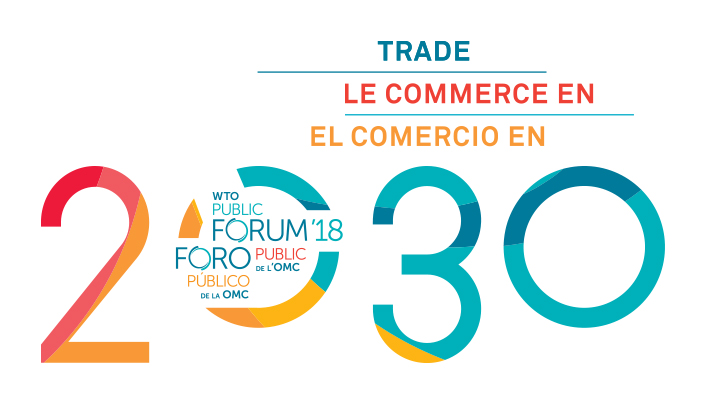Technology for trade and agriculture: Unleashing agriculture global value chains’ (GVCs) potential in OIC member countries
2 Oct 2018 02:00h
Event report
The moderator, Mr Andreas Klasen (Head of Institute for Trade and Innovation (IfTI), Offenburg University), started the session by reading a statement on behalf of the director of the International Islamic Trade Finance Corporation (ITFC), highlighting the important role that trade plays in economic growth and development, and explaining the mission of the ITFC. He emphasised that the use of technology in global value chains (GVCs) is able to support agriculture, by facilitating transportation and traceability; reducing information and coordination constraints; and reducing the cost of trade.
Klasen asked Mr Torbjörn Fredriksson (Chief, ICT Policy Section, United Nations Conference for Trade and Development (UNCTAD)) to comment on the impact of digitisation on GVCs. Fredriksson started by highlighting the importance of the agriculture sector in many developing countries. According to him, there are three types of digitisation:
- Thin integration, which is the use of digital technology facilitation for better coordination of the GVCs. However, it does not deeply transform the activity (e.g. use of e-mail, mobile, spreadsheets by actors).
- Platform-based integration applied to price dissemination. In this case, ICTs support the dissemination of information in agricultural exchanges. They tend to be more successful when they offer additional access to a broader range of services, and capacity building assistance.
- Full digital integration, which means creating data-driven value chains. It enables easy tracking of payment and risk of frauds, among other benefits. However, there is need for more research on the effects of these practices on inclusion. Trade unions, co-operatives, and other actors may be displaced in a scenario of full digital integration. Capacity building, training and technical assistance are necessary to avoid exclusion.
Mr Daniel Annerose (CEO, Manobi), stressed the need for not only market data collection, but the know-how to utilise data solutions to increase value in agriculture GVCs. In a chain, it is important that every player is known. There is scant data on farmers, how they produce, and their challenges for example. Data needs to be appropriated and used in a way that can specifically help the agriculture sector in least developed countries (LDCs).
An ITFC representative from the audience explained the mission of the organisation, which is to provide instruments to finance trade. Finance of agriculture represents 12% of the portfolio of the bank. However, some years ago, the ITFC mutated into a trade solution institution, that promotes trade development activities. Topics of interest to the ITFC’s include: ways to improve agriculture and increase the volume of trade through collection of data, precision farming, and geo-mapping. He also spoke of the soil-mapping exercise conducted in five countries with the support of the ITFC.
Mr Henry Monceau (Permanent Observer of the Organisation Internationale de la Francophonie to the United Nations Office in Geneva), addressed the importance of technology for development. He highlighted that technology has broken down thematic compartmentalisation and silos, creating challenges. Developing countries also face difficulties storing data, and extracting value from it locally. Africa has a low retention capacity, and treats data in the regional level, for example.
Dr Ratnakar Adhikari (Executive Director, Executive Secretariat for the EIF), commented on the possibilities technology creates to positively transform the lives of farmers. Unfortunately, it is still developed countries that are reaping most of the benefits. For developing countries, there are challenges that need to be overcome, such as infrastructure, logistics, trade facilitation methods, payment solutions, and skills limitations.
Related topics
Related event

